Conditions
All the information on checkyourfood.com is based on current scientific knowledge.
At checkyourfood.com we keep abreast of all the latest nutritional science and update you accordingly.
Research in this area is far from conclusive and is very much ongoing, much of the evidence is presented as for the prevention of disease. However the role of micronutrients in prevention could give rise to them having a role in the cure of disease.
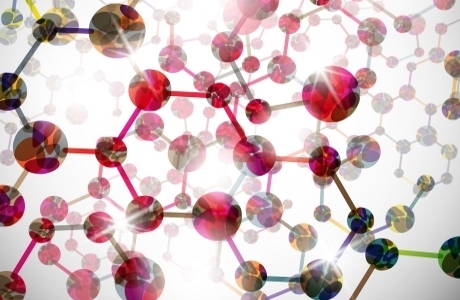
For example the first controlled clinical trial involving micronutrients happened in 1747 when James Lind used citrus fruits to cure sailors with scurvy, from this experiment it was deduced that citrus fruits could be used to prevent scurvy. In 1933 vitamin C was isolated and credited with these scurvy healing and prevention powers.
Information on James Lind
We have kept the information to dietary intakes of nutrients affecting diseases and conditions rather than information regarding treatment using supplementation.
Click on a condition to find out about it:
| Neurodegenerative Diseases |
|---|
|
Alzheimer’s disease
Other dementias Parkinson’s disease |
| Heart disease |
|---|
|
Atherosclerosis
Cardiac arrhythmias Cardiovascular disease |
Alzheimer’s disease
Choline - evidence suggests that may be significant in preventing memory loss, what may also be significant is that when choline deficiency is addressed, several other symptoms such as liver and muscle damage are reversed.
Information on choline and Alzheimer's from the LPI
Curcumin - evidence from animal trials show that curcumin (the active ingredient in turmeric) reduces the build-up of plaque in the brain and reduces inflammation and oxidative damage in the brain, all contributors to Alzheimer’s. Research is ongoing and larger human trials are needed to provide more conclusive evidence.

Folate - is essential for normal brain function and evidence has shown that elderly people with decreased levels of folate are much more likely to have dementia and short term memory problems.
Information on folate and Alzheimer's from the LPI
(Interestingly one study showed that people with diets high in folate and ‘folic acid’ were associated with increased cognitive decline which could be evidence that synthetic folic acid may be interfering with natural folate)
Vitamin B12 - decreased levels of B12 and folate (these two work together) have been shown to increase the chances of developing Alzheimer’s.
Information on vitamin B12 and Alzheimer's from the LPI
Iron – iron is required for normal brain function, however the accumulation of too much iron in the brain can lead to oxidative stress a potential pre-cursor to Alzheimer’s, this is not reckoned to be coming from too much iron in the diet but rather a problem with how our bodies regulate iron (maybe a warning against supplements)
Information on iron and Alzheimer's from the LPI
Thiamin – animal studies have shown that thiamin deficiency is linked to Alzheimer’s, suggesting that thiamin could protect against Alzheimer’s.
Information on thiamin (B1) and Alzheimer's from the LPI
Other Data sources - The Harvard Medical School
Other dementias
Flavonoids – higher flavonoid intakes have been shown to significantly reduce the risk of developing dementia later in life.
Information on flavonoids and dementia from the LPI
Vitamin K1 – higher intakes of leafy greens such as spinach has been shown to significantly reduce cognitive decline. Scientists believe this to be coming from a synergy between vitamin K1, folate, beta carotene (vitamin A) and lutein, all of which are present in leafy greens.
Information on vitamin K1, greens and cognitive decline from the Science Daily
Caffeine – higher intakes of caffeine amongst women over the age of 65 reduces the odds of dementia.
Information on caffeine and cognitive decline from the Oxford Journals
Parkinson’s disease
Coffee – several large studies have found that higher coffee intakes result in a significant decrease in the risk of Parkinson’s disease.
Information on coffee and Parkinsons disease
Iron – iron is required for normal brain function, however the accumulation of too much iron in the brain can lead to oxidative stress a potential pre-cursor to Parkinson’s, this is not reckoned to be coming from too much iron in the diet but rather a problem with how our bodies regulate iron (maybe a warning against supplements)
Information on iron and Parkinsons disease from the LPI
Atherosclerosis
Coenzyme Q10 - it has been shown in a test tube (in vitro) that the absence of Q10 can lead to the development of atherosclerosis.
Information on coenzyme Q10 and atherosclerosis disease from the LPI
Copper – some experts believe that copper deficiency, due to its antioxidant properties, can lead to an increased risk of atherosclerosis.
Information on copper and atherosclerosis from the LPI
Flavonoids – have been shown to decrease inflammation and keep our cells talking to each other properly which helps to prevent atherosclerosis.

Iron – excess iron from animal sources has been shown to increase the risk of heart attack, also when iron stores are high our bodies are better at regulating the iron from veg sources than the iron from animal sources, making it prudent not to take in too much iron from animal sources.
Information on iron and atherosclerosis from the LPI
Alcohol – experts agree that the most consistent evidence for the health benefits of alcohol is in the area of heart disease and heart attack. More than 60 studies have shown that adults who drink 2 standard drinks a day have a significantly lower risk of heart disease and heart attack.
Information on alcohol consumption and heart disease from the LPI
Omega 3 – evidence is accumulating that EPA and DHA omega 3 (from fish sources) can reduce the risk of heart disease, heart attack, atherosclerosis and stroke.
Information on omega 3 EPA and DHA and heart disease from the LPI
Vitamin C – has been shown in many studies to help with atherosclerosis by improving our arteries ability to relax.
Information on vitamin C and atherosclerosis from the LPI
Cardiac arrhythmias
Coffee – Clinical trials have not found any association between coffee consumption and cardiac arrhythmias.
Information on coffee consumption and cardias arrhythmias
Nuts – the combination of micronutrients in nuts have been shown to reduce the risk of heart disease.
Information on nuts and heart disease from the LPI
Omega 3 EPA/DHA – evidence is accumulating that higher intakes of omega 3 EPA/DHA can reduce the risk of heart disease by preventing cardiac arrhythmias and coronary heart disease.
Information on omega 3 EPA/DHA and cardiac arrhythmias from the LPI
Cardiovascular disease
Fibre – studies have consistently found that high intakes of fibre rich foods leads to significant reductions in heart disease, particularly from cereal and fruit fibre. Three large studies showed that fibre intakes of 14g per 1,000 calories resulted in a 16-30% reduction in heart disease, (make sure your gut is healthy).
Information on fibre and cardiovascular disease from the LPI
Folate – A study that followed 1,980 Finnish men for ten years found that those who consumed the most dietary folate had a 55% lower risk of an acute coronary event when compared with those who consumed the least dietary folate.
Information on folate and cardiovascular disease from the LPI
Vitamin B6 – a recent study in Japan of middle aged individuals for 11.5 years found that higher intakes of vitamin B6, average 1.6mg per day, resulted in a 48% lower risk of heart attack than those eating an average of 1.3mg per day.Information on vitamin B6 and cardiovascular disease from the LPI
Vitamin C – overall the results from a number of studies have shown that a higher vitamin C intake lowers the risk of coronary heart disease.
Information on vitamin C and cardiovascular disease from the LPI
Vitamin K1 – vitamin K1 intake has been shown to significantly reduce the risk of cardiovascular disease.
Information on vitamin K1 and cardiovascular disease from the LPI
Whole grains – seven large studies have shown that higher intakes of whole grains leads to a significant reduction in the risk of coronary heart disease.
Information on whole grains and cardiovascular disease from the LPI
Autoimmune disease
Vitamin D - the results of several studies have shown that adequate vitamin D intake protects against autoimmune diseases including rheumatoid arthritis, MS and diabetes.
Information on vitamin D and autoimmune diseases
Cancer
Richard Doll and Richard Peto have reported that 10–70% (average 35%) of human cancer mortality is attributable to diet.
Doll, R. & Peto, R. The causes of cancer: quantitative estimates of avoidable risks of cancer in the United States today. J. Natl Cancer Inst. 66, 1191–1308 (1981).
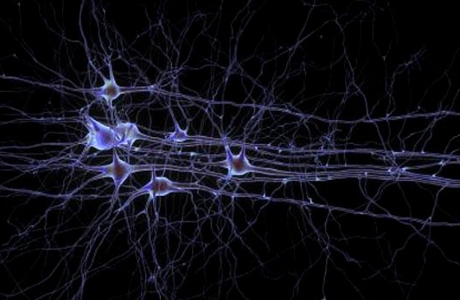
Cruciferous vegetables – veg like cabbage, kale, Brussel sprouts, cauliflower, rocket, watercress, swede and turnips contain micronutrients that may work synergistically with each other to protect us from cancer. High intakes of these veg have been shown to reduce the risk of lung and bowel cancer. As these veg are chopped or chewed phytochemicals like isothiocyanates are created and these have been shown to eliminate carcinogens before they can damage DNA and protect us from the damaging cell distortions that lead to cancer. Studies of genetics have shown that people with certain ‘null’ genes, which make them more susceptible to cancer, actually absorb more of the cancer protective phytochemicals from cruciferous veg! Research is ongoing and experts say that we should aim for 5 servings of cruciferous veg a week.
Information on cruciferous vegetables and cancer
Curcumin – curcumin the active ingredient in turmeric has been shown in a laboratory to cause human cancer cells to die off, and in animal studies has been shown to reduce the development of cancer. Curcumin has also been shown to inhibit pathological angiogenesis (the blood supply that tumours set up to feed themselves).
Information on curcumin and cancer from the LPI
Flavonoids – various flavonoids have been found to inhibit the development of chemically induced cancers in animals and inhibit the development of pathological angiogenesis (the blood supply that tumours set up to feed themselves) however evidence from human studies that diets high on flavonoids greatly reduce cancer risk are inconsistent. This may be due to the fact that our understanding of the complex interactions between phytochemicals and other micronutrients in food is limited. However the flavonoids quercetin and myricetin have been shown in human studies to reduce the risk of lung and prostate cancer respectively.
Information on flavonoids and cancer from the LPI
Lycopene – higher intakes of tomato and tomato products have been linked with significant reductions in the risk of prostate cancer and research is ongoing.
Information on lycopene and cancer from the LPI
Niacin – a large human study has shown that increasing the intake of niacin by 6mg per day is associated with a significant reduction in the incidence of mouth and throat cancers and esophageal cancer.
Information on niacin and cancer from the LPI
Phytosterols – whilst some studies have shown that higher intakes of phytosterols from plants is associated with a decrease in cancer risk, it is not fully understood whether this is due to the phytosterols, other compounds in plant foods, or the complex interactions that take place when eating foods, between phytochemicals and other micronutrients.
Information on phytosterols and cancer from the LPI
Selenium – geographic studies have consistently shown that there is a strong relationship between low selenium intakes and higher levels of deaths from cancer. Other studies have shown that selenium protects against prostate cancer, liver cancer and lung cancer particularly in smokers.
Information on selenium and cancer from the LPI
Tea – there have been promising results from animal studies as to the properties of tea preventing cancer, however it is unclear as to whether humans absorb enough of the flavonoids in tea to provide these protective effects. This is due to the differences between individuals in absorption and it seems to depend on whether or not you have low activity of a certain enzyme which allows the flavonoids to stay longer in your system thus providing a more powerful effect. Research is ongoing but it seems that the advice is to drink your tea at not too high a temperature.
Information on tea and cancer from the LPI
Vitamin B12 – deficiency in this micronutrient renders folate unusable by the body. Folate is required for the creation of DNA and if it is disempowered this can lead to damage to our DNA which is an important risk factor in cancer.
Information on vitamin B12 and cancer from the LPI
Vitamin C – several large studies have found that high intakes of dietary vitamin C significantly reduces the risk of breast and stomach cancer.
Information on vitamin C and cancer from the LPI
Whole grains – studies have shown that people with higher whole grain intakes have a significantly lower risk of developing cancer particularly bowel cancers. However the grains must be stored correctly to avoid potentially carcinogenic fungus from affecting them.
Information on whole grains and cancer from the LPI
Garlic – many studies in China have shown that diets high in garlic significantly protect against stomach cancer, however studies involving garlic supplementation have found no significant protection is afforded, so stick to natural garlic.
Information on garlic and cancer from the LPI
Vitamin D – studies have shown that decreased vitamin D levels increase the risk of developing several types of cancer.
Information on vitamin D and cancer from the LPI
Coffee – several studies have shown that coffee consumption by people with liver disease significantly reduces the risk of developing liver cancer and death from liver cancer.
Information on coffee and liver cancer from the LPI
Cataracts
Lutein and zeaxanthin – these two phytochemicals exist in the human eye and studies have shown that higher intakes of them make people less likely to develop macular degeneration and cataracts.
Information on macular degeneration, cataracts and lutein and zeaxanthin from the LPI
Riboflavin – studies have shown that higher dietary intake of riboflavin leads to a substantially reduced risk of developing cataracts.
Information on cataracts and riboflavin from the LPI
Thiamin – two studies have shown that higher thiamin intake is associated with a 40% reduced risk of developing cataracts.
Information on cataracts and thiamin from the LPI
Vitamin C – some studies have shown that increased dietary intake of vitamin C is associated with a decreased risk of cataract formation.
Information on cataracts and vitamin C from the LPI
Celiac disease
Copper – the malabsorption associated with celiacs may lead to copper deficiency.
Information on celiac disease and copper deficiency from the LPI
Iron - the malabsorption associated with celiacs may lead to iron-deficiency anaemia.
Information on celiac disease and iron deficiency from the LPI
Magnesium - the malabsorption associated with celiacs may lead to magnesium deficiency.
Information on celiac disease and magnesium deficiency from the LPI
Vitamin B12 - the malabsorption associated with celiacs may lead to vitamin B12 deficiency.
Information on celiac disease and vitamin B12 deficiency from the LPI
Zinc - the malabsorption associated with celiacs may lead to zinc deficiency.
Information on celiac disease and zinc deficiency from the LPI
Depression
Omega 3 – ecological studies have suggested that a higher intake of fish to be related to lower levels of depression in a population. The evidence that this is due to omega 3 is promising but more evidence is need to conclude.
Information on omega 3 and depression from the LPI
Vitamin B6 – has been shown to enable the brain to produce dopamine and serotonin and studies have shown that low B6 levels contribute to depression.
Information on vitamin B6 and depression from the LPI
Vitamin B12 – studies have found that many patients submitted to hospital for depression are deficient in B12.
Information on vitamin B12 and depression from the LPI
Gout
Vitamin C – has been shown to both prevent gout and prevent its re-occurrence.
Information on gout and vitamin C from the LPI
High blood pressure
Calcium – 23 large studies have shown that calcium intake at the RDA reduces blood pressure.
Information on high blood pressure and calcium from the LPI
Potassium – relatively high dietary potassium intakes have been shown to lead to significantly lower blood pressures.
Information on high blood pressure and potassium from the LPI
Vitamin C – studies have shown that reduced vitamin C levels in the blood lead to increased blood pressure.
Information on high blood pressure and vitamin C from the LPI
HIV/AIDS
Selenium – adequate selenium in the diet may increase resistance to HIV infection by enhancing the function of the immune system and affecting the activity of the virus.
Information on selenium and HIV from the LPI
Hypertriglyceridemia
Omega 3 EPA/DHA – omega 3 from fish sources has been shown to lower triglyceride in doses of 2g a day.
Information on hypertriglyceridemia and omega 3 from the LPI
Immune function
Copper – copper plays an important role in the development and maintenance of our immune systems.
Information on copper and the immune system from the LPI
Iron – sufficient iron is critical to several immune functions
Information on iron and the immune system from the LPI
Selenium – studies have shown that increased selenium leads to an enhanced immune response.
Information on selenium and the immune system from the LPI
Vitamin A – even a mild deficiency in vitamin A leads to an increase in infectious disease.
Information on vitamin A and infectious disease from the LPI
Vitamin B6 – evidence has shown that adequate vitamin B6 is important for immune system function especially in older adults.
Information on vitamin B6 and the immune system from the LPI
Vitamin C – stimulates the production and function of white blood cells and has been shown to have protective and antiviral functions.Information on vitamin C and the immune system from the LPI
Vitamin D – has a variety of effects on our immune systems enhancing our overall immunity and stopping our immune systems from turning against us.
Information on vitamin D and the immune system from the LPI
Vitamin E – has been shown to help our immune systems particularly as we age.
Information on vitamin E and the immune system from the LPI
Zinc – adequate zinc intake is essential in keeping our immune systems effective.
Information on zinc and the immune system from the LPI
Kidney stones
Calcium – several studies have shown that a higher dietary calcium intake is associated with a lower incidence of kidney stones.Information on kidney stones and calcium from the LPI
Potassium – adequate dietary intake (RDA) of potassium has been shown to greatly reduce the incidence of kidney stone formation.
Information on kidney stones and potassium from the LPI
Tea – tea consumption has been shown to be associated with a reduced risk of developing kidney stones.
Information on kidney stones and tea from the LPI
Low HDL cholesterol levels
Alcohol – higher levels of HDL cholesterol are associated with a reduction in the risk of heart disease and moderate alcohol consumption has been demonstrated to significantly increase HDL levels.
Information on moderate alcohol consumption and HDL cholesterol levels
Regular exercise – has been shown to increase levels of HDL cholesterol.
Macular Degeneration
Carotenoids – lutein and zeaxanthin are present in the retina and may protect against the damage that leads to macular degeneration.
Information on macular degeneration and lutein and zeaxanthin from the LPI
Menopause
Hormone balance – soy isoflavones may help to maintain the hormonal balance during menopause (enter Soy isoflavones in the search to see the highest ingredients).
Bone health - to maintain bone health during menopause a good intake of calcium rich foods along with vitamin D from oily fish or sunshine is recommended (enter sunshine in the search to see how much you need).
Healthy immune system - to maintain a healthy immune system during menopause by eating foods rich in vitamin C, zinc, iron, copper, vitamin A, vitamin E and selenium.
Overview - as with all health considerations it is important to maintain a good intake (RDA or more) of all nutrients with an emphasis on the above recommendations.
Information on diet and menopause from Women's Health Concern
Osteoporosis
Fruits and vegetables - research is ongoing and the exact reasons are not fully understood but diets high in fruits and vegetables have been shown to prevent bone loss. This is largely due to their alkalising effects on the body preventing calcium from our bones being used to deal with the effects of a high acid diet.
Information on osteoporosis and fruit and veg from the LPI
Magnesium – higher dietary intakes of magnesium have been shown to result in increased bone mineral density and decreased bone mineral density is the primary feature of osteoporosis.
Information on osteoporosis and magnesium from the LPI
Potassium – several studies have shown that potassium rich foods may help to prevent osteoporosis by having a positive effect on our bone mineral density.
Information on osteoporosis and potassium from the LPI
Vitamin D – we need enough vitamin D to properly absorb calcium which prevents bone loss.
Information on osteoporosis and vitamin D from the LPI
Pregnancy
Research has shown that the following micronutrients are beneficial during pregnancy to avoid complications.
Biotin (B7) – biotin is broken down more rapidly during pregnancy and biotin is needed for healthy baby development.
Information on biotin and pregnancy from the LPI
Folate (B9) - this is critical for healthy DNA and RNA which are vital for a developing baby.
Information on folate and pregnancy from the LPI
Vitamin B12 – vitamin B12 is vital in enabling the work of folate.
Information on vitamin B12 and folate from the LPI
Iron – studies have shown that anaemia can result in low birth weight and premature birth so sufficient iron is recommended.
Information on iron and pregnancy from the LPI
Zinc – low zinc status has been associated with low birth weight, premature delivery and delivery complications.
Information on zinc and pregnancy from the LPI
Iodine - Iodine is critical to the early development of a baby’s brain and so Iodine levels are particularly important for pregnant and breast feeding women.
Information on iodine and pregnancy from the LPI
Stroke
Alcohol – moderate alcohol consumption has been shown to significantly reduce the risk of ischemic stroke (the commonest form).
Information on alcohol and stroke risk reduction from the LPI
Omega 3 – diets that include fish have been shown to lead to a reduced risk of ischemic stroke and this has been attributed to the omega 3 content.
Information on omega 3 and stroke risk reduction from the LPI
Potassium – several studies have suggested that higher dietary potassium intakes leads to a reduction in the risk of stroke especially in people with high blood pressure.
Information on potassium and stroke risk reduction from the LPI
Vitamin C –higher blood levels of vitamin C have been shown to lower the risk of stroke, however the higher vitamin C was attributed to vegetable intake so there may be other properties to the veg that are also contributory factors.
Information on vitamin C and stroke risk reduction from the LPI
Type 2 diabetes (non-insulin dependent)
Coffee – several studies have shown that higher intakes of coffee are associated with significant reduction in the risk of type 2 diabetes.
Information on diabetes and coffee from the LPI
Fibre – decreased fibre intakes have also been associated with the increase in type 2 diabetes. Higher intakes of dietary fibre is associated with a significant decrease in the risk of developing type 2 diabetes.
Information on diabetes and fibre from the LPI
Alcohol – a number of studies have found that adults who consume alcohol moderately significantly reduce their risk of developing type 2 diabetes.
Information on diabetes and alcohol from the LPI
Biotin – blood biotin levels have been shown to be significantly lower in people with type 2 diabetes, interestingly diets high in nuts and peanut butter have been shown to decrease the risk of developing type 2 diabetes in women - nuts and peanut butter are high in biotin.
Information on diabetes and biotin from the LPI
Whole grains – several large studies have found that higher whole grain intakes lead to a significant reduction in the risk of developing type 2 diabetes.

 About nutrients
About nutrients
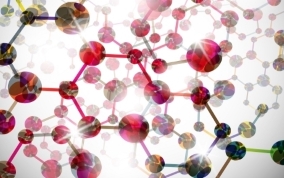 All nutrients
All nutrients
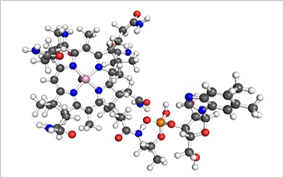 vitamins
vitamins
 minerals
minerals
 phytochemicals
phytochemicals
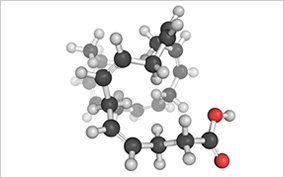 fatty acids
fatty acids
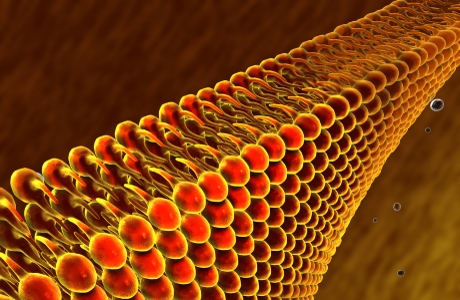 macronutrients
macronutrients
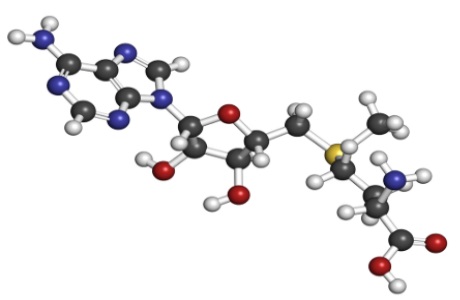 amino acids
amino acids